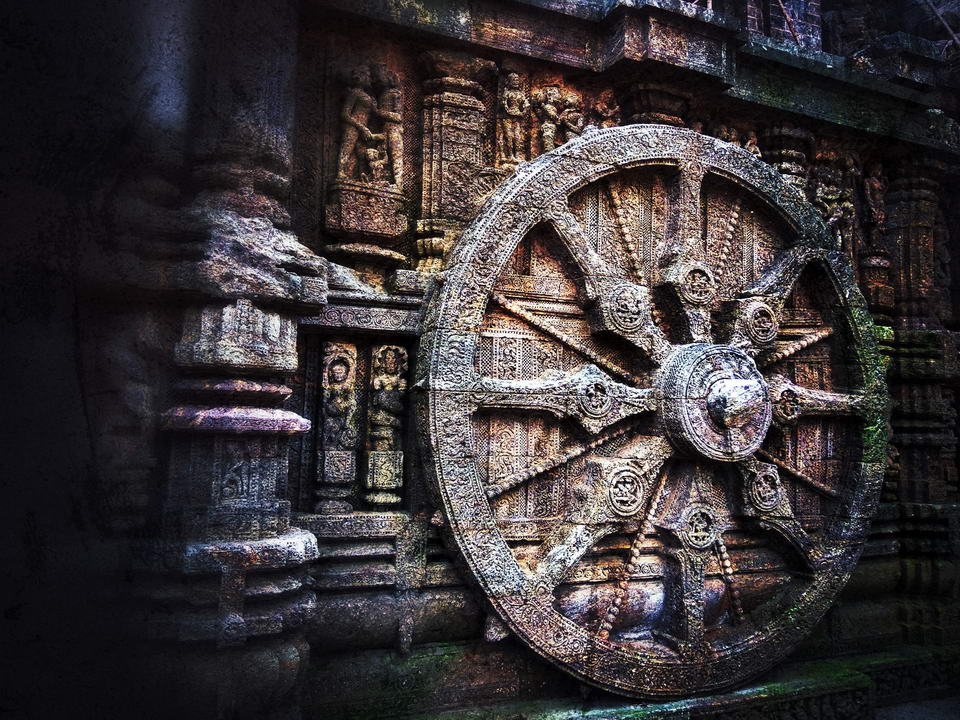In the intricate tapestry of Hindu philosophy, the concepts of Moksha and Samsara stand as two pillars representing the eternal cycle of life, death, and spiritual liberation. These concepts offer profound insights into the nature of existence, the pursuit of freedom from suffering, and the path to ultimate realization. In this blog article, we delve into the intertwined concepts of Moksha and Samsara, shedding light on their significance, meaning, and implications.
Explore Meditation Retreats & Wellness Retreats
Explore Yoga Retreats with Tejomaia.com
Samsara: The Wheel of Birth and Rebirth
Samsara is the cycle of birth, death, and rebirth that characterizes the material world. It is the realm of impermanence, where sentient beings traverse various forms of existence driven by karma, the law of cause and effect. Samsara is marked by suffering, as beings experience the ups and downs of life, caught in the cycle of desire, attachment, and aversion. Each individual’s actions and intentions accumulate karma, influencing the circumstances of their future lives.
Moksha: Liberation from Samsara
Moksha, often referred to as liberation or enlightenment, is the ultimate goal of human existence in Hindu philosophy. It is the state of transcendence beyond the limitations of Samsara, where the cycle of birth and rebirth is broken, and the soul attains eternal freedom. Moksha represents the realization of one’s true nature, unbound by the limitations of the physical world. It is a state of pure consciousness, unity with the divine, and liberation from suffering.
Paths to Moksha
Hinduism offers various paths to attain Moksha, catering to different temperaments and inclinations. These paths, known as Yogas, include:
- Bhakti Yoga: The path of devotion, where one seeks union with the divine through love, worship, and surrender.
- Karma Yoga: The path of selfless action, where individuals dedicate their actions to the greater good without attachment to the results.
- Jnana Yoga: The path of knowledge, characterized by self-inquiry, study, and contemplation to realize the true nature of reality.
- Raja Yoga: The path of meditation and mental control, leading to self-realization through disciplined practices.
Breaking the Chains of Samsara
The journey to Moksha involves breaking the chains of Samsara by transcending desires, attachments, and ignorance. It requires a profound shift in consciousness, where the individual recognizes the illusory nature of the material world and awakens to their divine essence. Moksha is not merely an escape from suffering; it is the realization of the interconnectedness of all beings and the attainment of eternal bliss.
The Pursuit of Liberation
The pursuit of Moksha is a deeply personal and transformative journey. It requires inner reflection, self-discipline, and a sincere commitment to spiritual growth. While Moksha is often associated with a state beyond life and death, it also has practical implications for how one lives in the world. Embracing the virtues of compassion, selflessness, and wisdom not only furthers one’s spiritual journey but also contributes to the well-being of all sentient beings.

Moksha and Samsara form the foundational framework of Hindu philosophy, offering a profound perspective on the nature of existence and the pursuit of spiritual realization. Samsara represents the cycle of life, death, and rebirth, characterized by suffering and impermanence. Moksha, on the other hand, signifies liberation from this cycle and the attainment of ultimate truth, bliss, and freedom. The journey from Samsara to Moksha involves a transformation of consciousness, guided by the pursuit of self-knowledge, virtuous living, and the practice of yogic paths. As seekers embark on this sacred journey, they move closer to breaking the shackles of suffering and attaining the eternal liberation that lies at the heart of Hindu philosophy.
Explore Meditation Retreats & Wellness Retreats
Explore Yoga Retreats with Tejomaia.com



